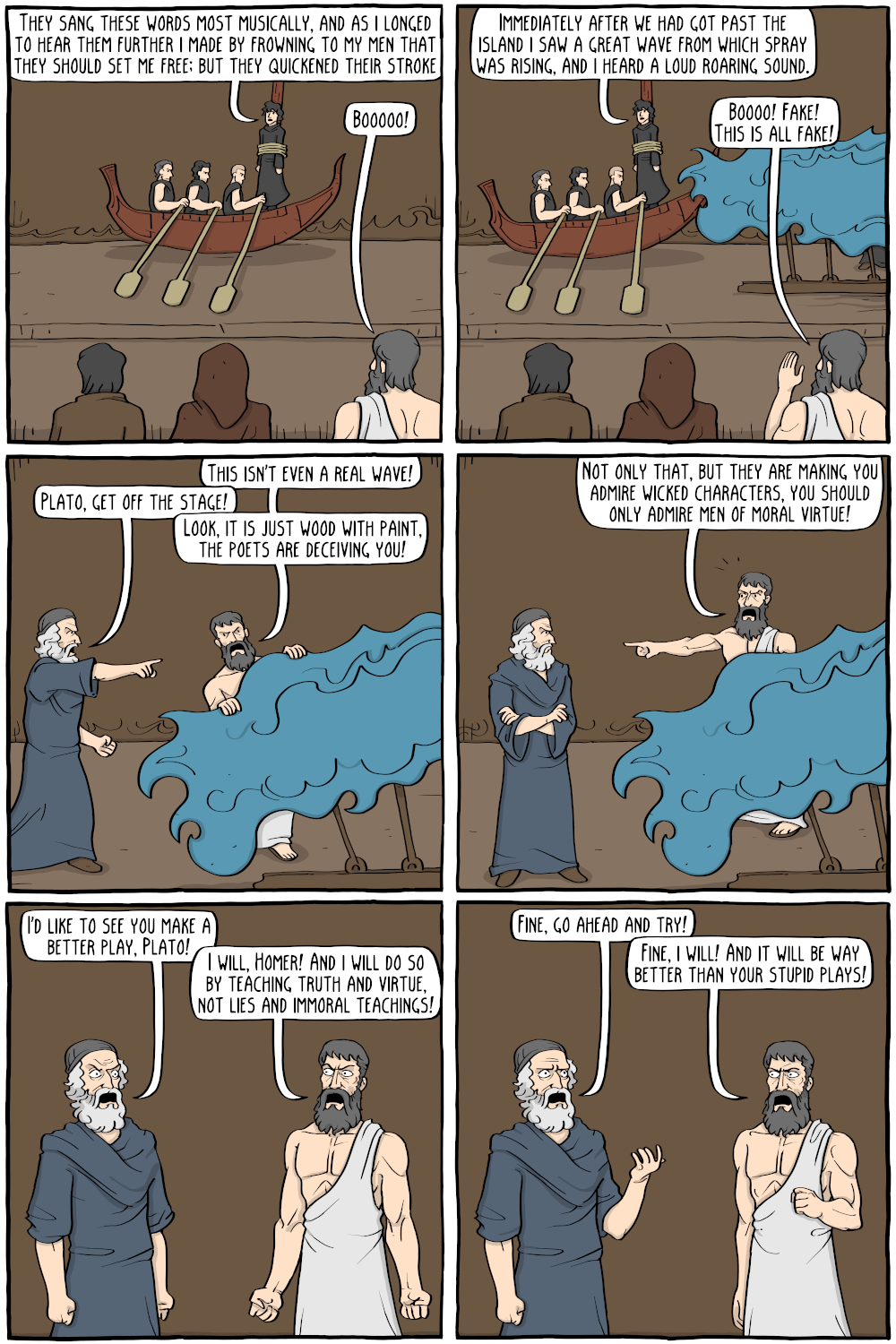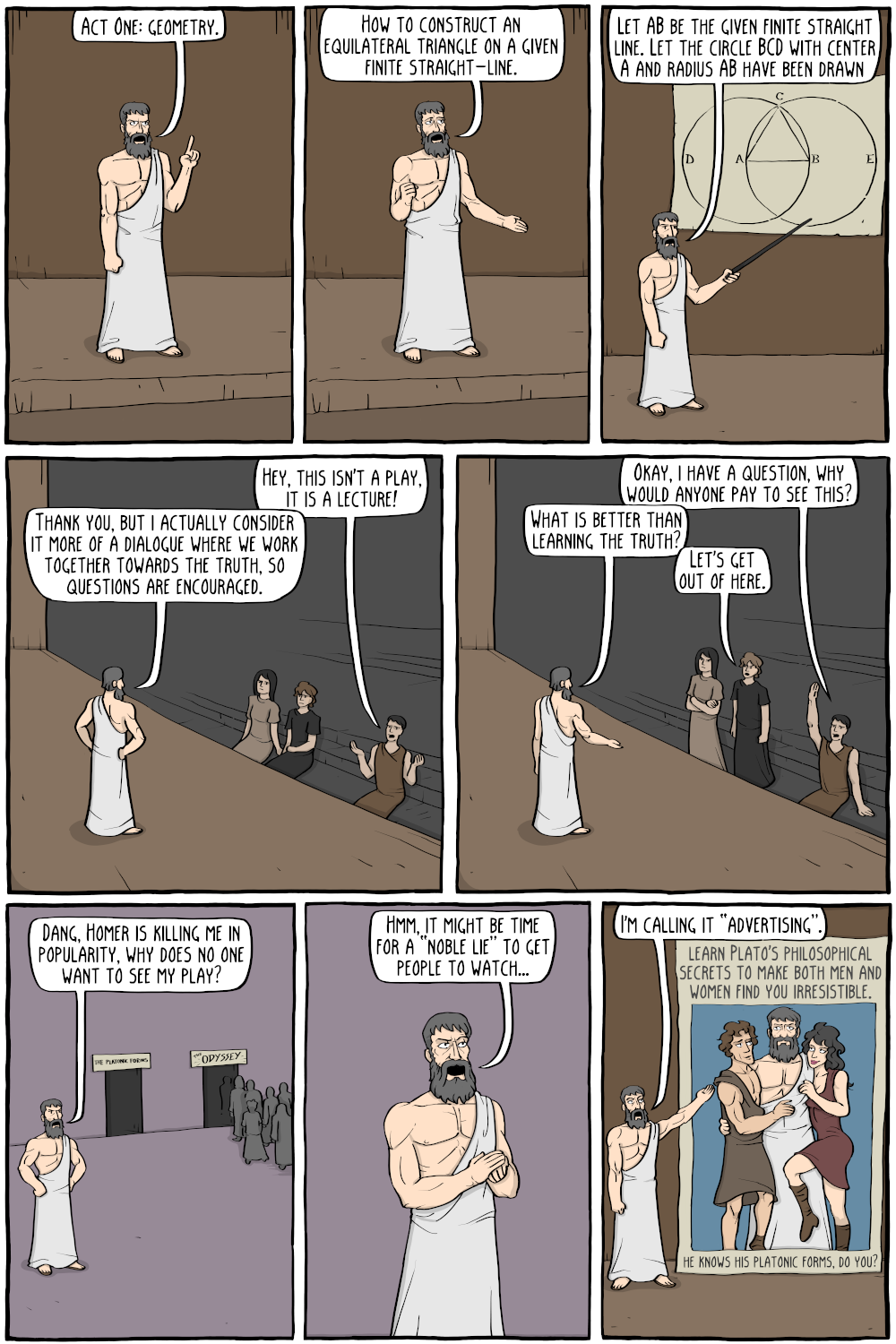

In The Republic, Plato described the ideal city, and said that the Poets would be cast out of the city, along with the rhetoricians. It can be sort of hard to understand why he hated the poets so much, or thought they were so dangerous as to be exiled entirely, which seems a little extreme to us today. He seemed to think that, like the rhetoricians, because poetry doesn't make its aim to understand the truth, it was a dangerous way to spread ideas. It worked by inciting grand feelings or emotions, rather than engaging in a sort of ration, platonic dialogue. This sort of thing he held up as being fundamentally opposed to philosophy, which is what he believed should be governing the city, and governing our lives.
You can read more about Plato's views on Poetry in the Stanford Encyclopedia of Philosophy.
Permanent Link to this Comic: https://existentialcomics.com/comic/323
Support the comic on Patreon!










